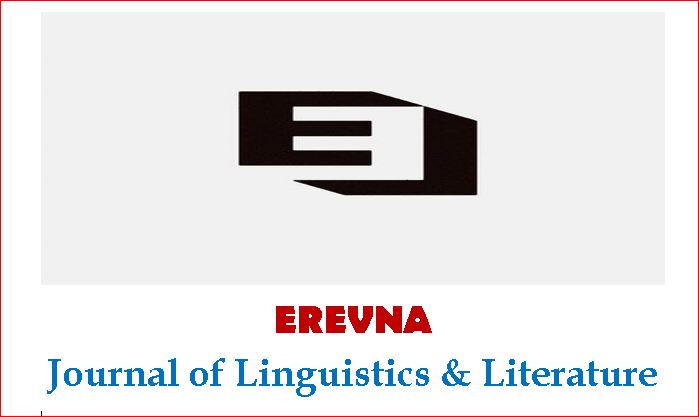Discursive Practices of Pakistani Press through Headlines in Shaping up Political Realities
DOI:
https://doi.org/10.1234/ejll.v4i2.181Keywords:
Ideology Headline Discursive practices Reality construction MediaAbstract
Post-structuralist theorists think that linguistic capabilities are applied to construct identity as well as ideology, power relations, creation of knowledge and knowledge reproduction, and relations within and outside community; thus, it produces various sorts of reality versions indicating that reality is, by and large, socially constructed. Linguistic power is generally employed with the help of institutional along with organizational mechanisms and hegemonic control. As a matter of fact, political discourse has this power, along with other subtleties of power, quite in contrast to the power of discursivity acquired by media; predominantly, print media carries an extensive space for the discursive construction. Pakistani media has acquired prominence as well as freedom in past years. Consequently, people have become more media-dependent for opinion-making; particularly, the educated class, which is considered as an opinion maker, depends on newspapers. This study provides a way to understand and develop a meaning-making process in the representations of political eventualities. This study generates an awareness that linguistic choices employed in reporting the political ideologies are a very powerful tool to affect the thoughts of readers, and, therefore, print media contributes to generating diverse opinions in Pakistani society
References
Ahmadian, M. & Farahani, E. (2014). A critical discourse analysis of The Los Angeles
Times and Tehran Times on the representation of Iran’s Nuclear Program. Theory
and Practice in Language Studies. 4(10), 2114-2122
Blaikie, N. (2010). Designing social research. Cambridge: Polity Press.
Bourdieu, P. (1991). Language and symbolic power. USA: Polity Press.
Cook, T. E. (1998). Governing with the news: The news media as a political institution.
Chicago: Cottle, Simon. ‘Participant Observation: Researching News Production.’
Pp. 35–65 in Mass Cresskill, NJ: Hampton Press
Fairclough, N. (1989). Language and power. London and NY: Longman.
Fornkwa, J. M. (2015). A critical discourse analysis of newspaper on the 2015 state budget
Foucault, M. (1983). Beyond structuralism and hermeneutics. Chicago: University of
Chicago Press.
Grue, J. (2006). Newspaper film reviews: A critical discourse analysis. Masters thesis.
Kougoum,T. G. (2016). A Critical Discourse Analysis of newspaper articles on Boko
Haram of Cameroon in the national press. Retrieved from
[email protected] on 20th of March, 2017.on the representation of Iran’s
Nuclear program. Finland: Academy publisher.R. et al.) London: Routledge and
Kegan Paul, pp. 185-213.
M. Akbar K., M. Ramzan M., &Shazia R. D. (2017). Deconstruction of Ideological
Discursivity in Pakistani Print Media Advertisements from CDA Perspective,
Erevna: Journal of Linguistics and Literature, Volume 1, No.1 Pp.57-79
Bell, Roger T. (1991). Translation and translaling: Theory and Practice. London and
Newyork: Longman. Pp.217
Tamkeen Z., Zafar U. S., & Huma B. (2017). A Comparative Analysis of News Structure
for Two War Commentaries, Erevna: Journal of Linguistics and Literature,
Volume 1, No.2 Pp.07-21
Thompson, J. (1995). The media and modernity: A social theory of the media. Stanford:
Stanford University Press.
van Dijk, T. (1988). News as discourse. Hillsdale, NJ: Lawrence Erlbaum Associates.
van Dijk, T. A. (2009). Methods of critical discourse analysis. In Critical Discourse
Studies: A Sociocognitive Approach. Wodak, R. and Meyer, M., eds. London:
SAGE.
van Dijk, Teun. (1993). Elite discourses and racism. London: Routledge.
Wodak, R. (1996). Orders of discourse. New York: Addison Wesley Longman.
Zelizer, Barbie and Allan, Stuart (2002). Journalism after September 11. London:
Routledge





